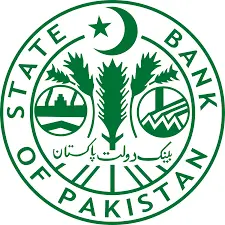Islamabad January 15 2025: Federal Minister for Finance and Revenue, Senator Muhammad Aurangzeb said that Pakistan was eager to tap the Yuan bond market and would encourage corporate stock listings in Hong Kong to bolster and broaden its ties with China.
In an interview with Nikkei Asia, Minister Aurangzeb said that an initial issuance of a panda bond should take place by the end of this year. The move is expected to be worth around $200 million to $250 million, but “it’s not a question of amount,” the minister said on the sidelines of the annual Asian Financial Forum in Hong Kong.
“What is important is that we do go for an inaugural issue and then, once it’s successful, we can always keep it on tap,” he said. Aurangzeb said that not using the world’s second-largest capital market until now had “been a miss on our part.” “We are quite keen that during this calendar year, we do,” he added.
Aurangzeb expressed hope for reaching the “B” rating zone in due course by carrying out reforms in accordance with the IMF’s terms, he stressed the importance of “diversifying” the country’s funding sources.
He said, Hong Kong’s stock market was also part of the picture, adding that an equity listing of Service Long March— a Pakistani-Chinese joint venture that makes tires for trucks and buses – in the city is in sight.
“These JVs want to do equity [fund] raising, and in the international markets, Hong Kong is a very, very obvious choice for these joint ventures,” he said, eyeing future opportunities for primary and secondary listings by Pakistani companies in Hong Kong.
He emphasized that the China Pakistan Economic Corridor (CPEC) was a flagship of the Belt and Road Initiative, a core economic and geopolitical drive spearheaded by Chinese President Xi Jinping.
To a question on how the IMF’s conditions might affect planned projects with China – as offering new tax incentives and establishing new economic zones is not allowed – the Pakistani minister brushed off such concerns.
“It’s not really as big a deal as it’s being made” out to be, he said, since there are many existing projects that first need to be implemented.
He said, government attaches “the highest attention at the highest level” to the safety issue, not only for Chinese but for all foreign nationals in the country. He added that the situation on the ground “is actually much better than what we see in the news and on various channels.”
As for tangible progress on reform and restructuring, Aurangzeb pointed to data points such as falling inflation, increased foreign exchange reserves, and a record-breaking performance of the local stock market.
“All of this has moved us in the right direction, including the biggest story for us, which is inflation,” which dropped from nearly 38% in May 2023 to 3% this month.
At the same time, he admitted that his country “has not really come through” on the execution and implementation part yet, especially in four key areas — taxation, the energy sector, state-owned enterprise reform and public finance. For instance, the ratio of taxes to gross domestic product still lags at 10.8%, versus the target of 13.5%.
Despite a failed attempt to sell the loss-making national flagship carrier Pakistan International Airlines (PIA) last fall, he said the government was “very hopeful” about relaunching the effort in the coming months.
He said, it was imperative for all sides to agree on fundamental points to move “the economy forward, because it is critical that we stay away from boom and bust cycles.” “We are now in the 25th IMF program, and we want to, you know, ensure that this is the last program,” he said.
To do that, he believes the country needs to firmly establish an export-led growth model, attract more foreign direct investment and go back to the international capital market.










